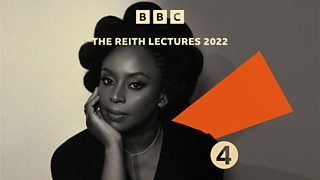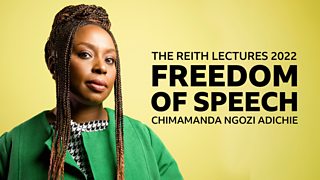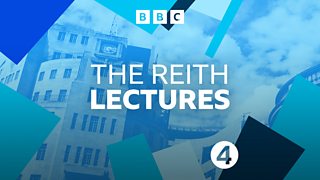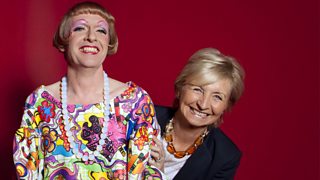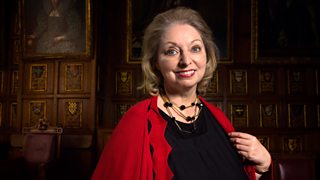Is free speech under attack? Eight key points from Chimamanda Ngozi Adichie鈥檚 大象传媒 Reith Lecture
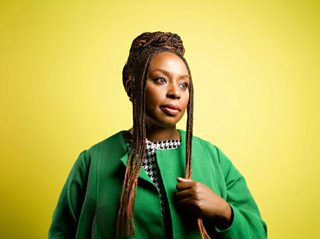
Inspired by President Franklin D Roosevelt’s famous "Four Freedoms" speech, the 2022 Reith Lectures examine freedom of speech, freedom of worship, freedom from want and freedom from fear.
Against the background of cancel culture, arguments about “wokeness" and the assault on Salman Rushdie, the first lecture from best-selling Nigerian author Chimamanda Ngozi Adichie considers whether freedom of speech is under attack. Have we become too “tribal” in our beliefs to engage with other points of view? What are the consequences of “social censure”? And what can be done to redress any imbalance?
Here are some of the key points in Chimamanda’s lecture which you can hear on 大象传媒 Sounds…
1. The biggest threat to free speech is not legal or political, but social
Valuing freedom of expression as “the bedrock of open societies”, Chimamanda Ngozi Adichie fears the greatest threat to it is “not legal or political, but social”.
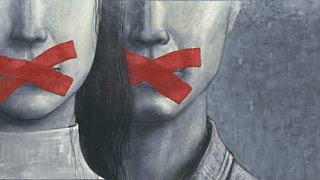
“There are many people in Western democracies today who will not speak loudly about issues they care about because they are afraid of what I will call, ‘social censure’ – vicious retaliation, not from the government, but from other citizens.”
Chimamanda observes that “we now live in broad, settled, ideological tribes” which leads many young people to practise self-censorship. “Even if they believe something to be true or important, they do not say so because they should not say so”.
2. Social censure threatens creativity
“No human endeavour requires freedom as much as creativity does,” Chimamanda argues, and she worries that social censure “portends the death of curiosity, the death of learning and the death of creativity”.
Chimamanda fears that “literature is in peril… if nothing changes, the next generation will read us and wonder, how did they manage to stop being human? How were they so lacking in contradiction and complexity? How did they banish all their shadows?”
3. Salman Rushdie’s The Satanic Verses probably wouldn’t be published today
Noting the tragic irony that the recent attack on Salman Rushdie came as he was about to make an address on the subject of free speech, Chimamanda wonders whether his novel, The Satanic Verses, would be published today. “Probably not,” she says. “Would it even be written? Possibly not.”
“There are writers, like Rushdie, who want to write novels about sensitive subjects but are held back by the spectre of social censure.”

"I want to make a case for moral courage."
Chimamanda Ngozi Adichie says the biggest threat to freedom of speech today is social.
4. Censorship doesn鈥檛 work
Chimamanda confesses that there are books that she would “fantasise about banning” such as “books that deny the Holocaust or the Armenian genocide”. But she argues against this reaction, noting that “censorship very often does not achieve its objective. My first instinct, on learning that a book has been banned, is to seek it out and read it”.

“Do not ban them, answer them,” she says. “In this age of mounting disinformation all over the world, when it is easy to dress up a lie so nicely that it starts to take on the glow of truth, the solution is not to hide the lie but to expose it, and scrub from it its false glow.”
So, while Chimamanda accepts that some restrictions on free speech are necessary is a civilized world, she believes that “the answer to bad speech is more speech”.
5. Tolerance comes from free expression – not from censorship
To those who argue that censorship is needed to create tolerance, Chimamanda quotes Danish lawyer, Jacob Mchangama: “To impose silence and call it tolerance does not make it so. Real tolerance requires understanding. Understanding comes from listening. Listening presupposes speech.”
6. Unequal power is a threat to free speech
Chimamanda notes that inequalities of power and wealth affect who is able to “answer bad speech with more speech”. One example of these “unequal power relations” which she gives in her lecture is “a mainstream press owned by fewer and fewer wealthy people, which naturally excludes multiple voices”.
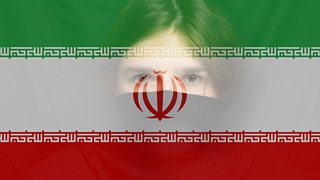
She also criticises social media companies for their “lack of transparency”, adding: “[they] exert enormous control on who can speak and who cannot, by suspending and censoring their users, something that has been called ‘moderation without representation’”.
7. Dissent cannot exist without freedom of speech
“We all need free speech,” says Chimamanda. “Free speech is indeed a tool of the powerful, but it is also crucially the language of the powerless. The courageous protests by Iranian women, the #EndSARS protest in Nigeria, where young people rallied against police brutality, the Arab Spring: all wielded speech. Dissent is impossible without the freedom of speech.”
8. Collective action is needed to protect free speech
Protecting free speech and freedom of expression, whether that be for dissent or for the sake of argument, can only be achieved by “collective action”, Chimamanda believes.
To counter what she sees as a “climate of fear” and a reluctance to acknowledge it, Chimamanda exhorts people with influence to become a “coalition of the reasonable” and make it possible for discourse to aspire to a number of things including: assuming “good faith” once more; to “insist not only on truth but also nuance”; to make our case “respectfully and factually”; to “stop assuming that everyone knows, or should know, everything” and “to “hear every side and not only the loudest side”.

The Reith Lectures on 大象传媒 Radio 4
-
![]()
The Reith Lectures Archive
Download talks on subjects such as: the limits of contemporary art or what freedom means.
-
![]()
New to the Reith lectures? Here's where to start
Four lectures recommended by the series producer.
-
![]()
Ten of the best Reith lectures
Series producer Jim Frank picks his personal favourites.
-
![]()
Six Reith Lectures to make you smarter
A helpful steer from the series producer
